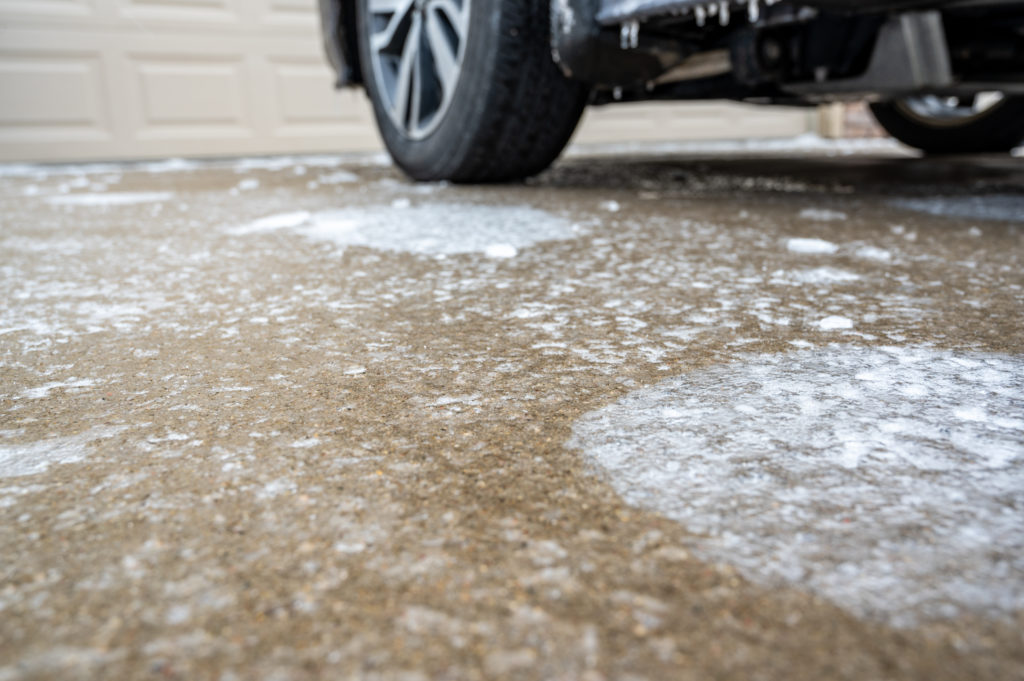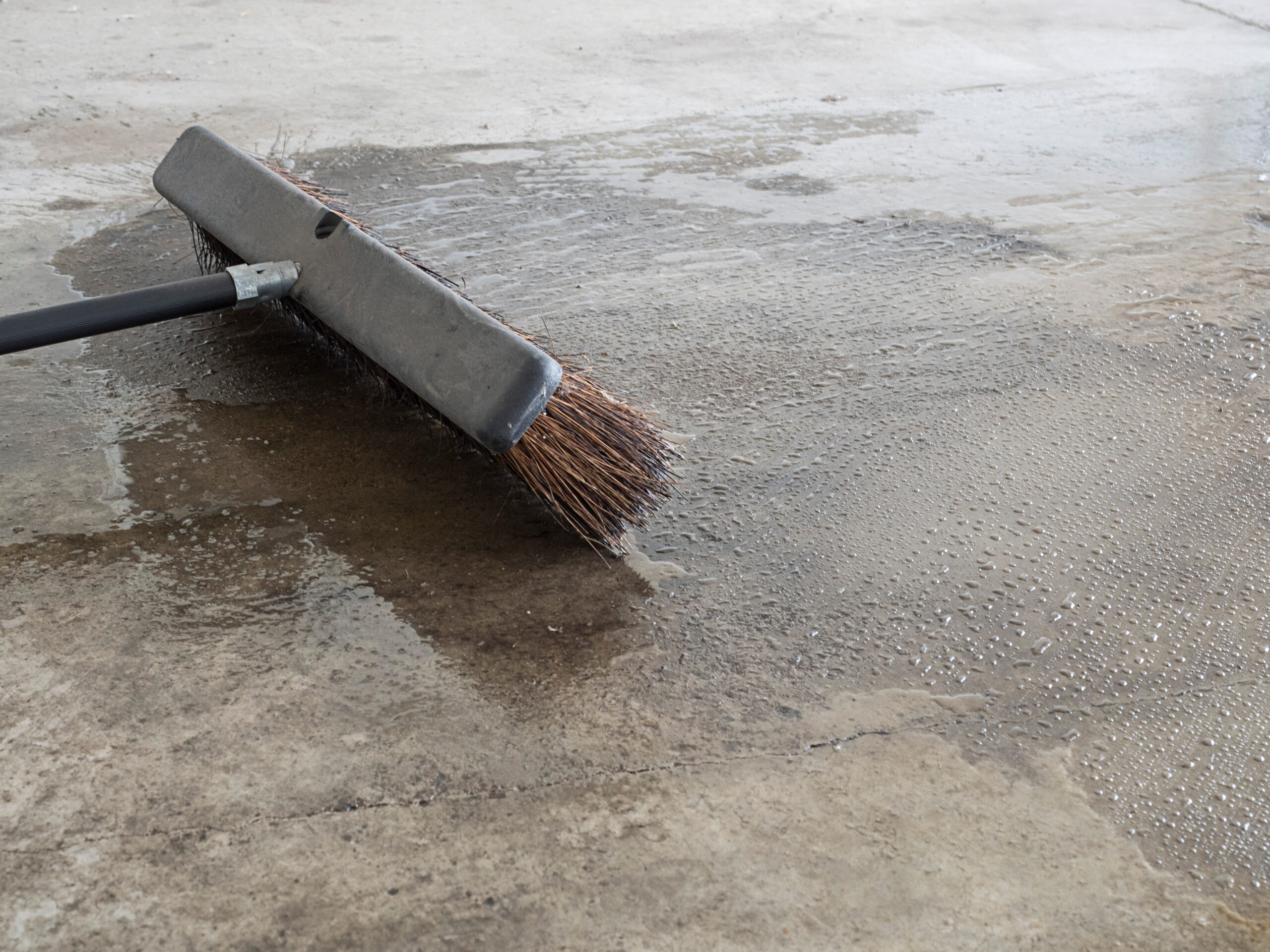Winters in New Hampshire come with ice, snow, and bitter cold. When it comes to dealing with an icy driveway, there are two ways to reduce the slipperiness: salt and sand. You can get both at your local hardware store, but which should you use? Is one better than the other?
Both salt and sand have their pros and cons. Let’s take a look so you can decide what you need to pick up on your next trip to the hardware store.
Salt: Pros and Cons
While both salt and sand with give you some traction on the ice, only salt will melt it. This is one for the pro column, but it also has its drawbacks. Salt is corrosive, which is why it melts the ice. However, salt’s corrosive properties won’t just affect the ice. Salt can also corrode concrete, especially new concrete, and the undercarriage of your vehicles. If the salt strays from your driveway and walkways and onto your lawn or plants, it can damage them. Some salt is also toxic to animals, so you have to choose a variety that is pet-safe.
Sand: Pros and Cons
The primary benefit of sand over salt is that it gives you traction on the ice immediately, while sand needs some time to work. On the other hand, because sand cannot melt the ice, more ice can form on top of it. Sand is also safe to use around pets and plants and will not harm them. However, excess sand can clog storm drains.
Which Do You Choose?
Whether you pick salt or sand depends on your home and your property. If you have a long driveway, putting salt down to melt the ice will make clearing it away much easier. But if you park cars in your driveway, you may prefer to use sand to avoid corroding the undercarriage of your vehicles. One thing is certain: you won’t be able to completely avoid tracking some into your house.

Be Ready for Anything with Your Local Hardware Store
Whether you need salt, sand, shovels, or anything else this winter, you’ll find it at Aubin Ace Hardware. We carry tools, lawn care products, and everything in between to help you get through the winter.









